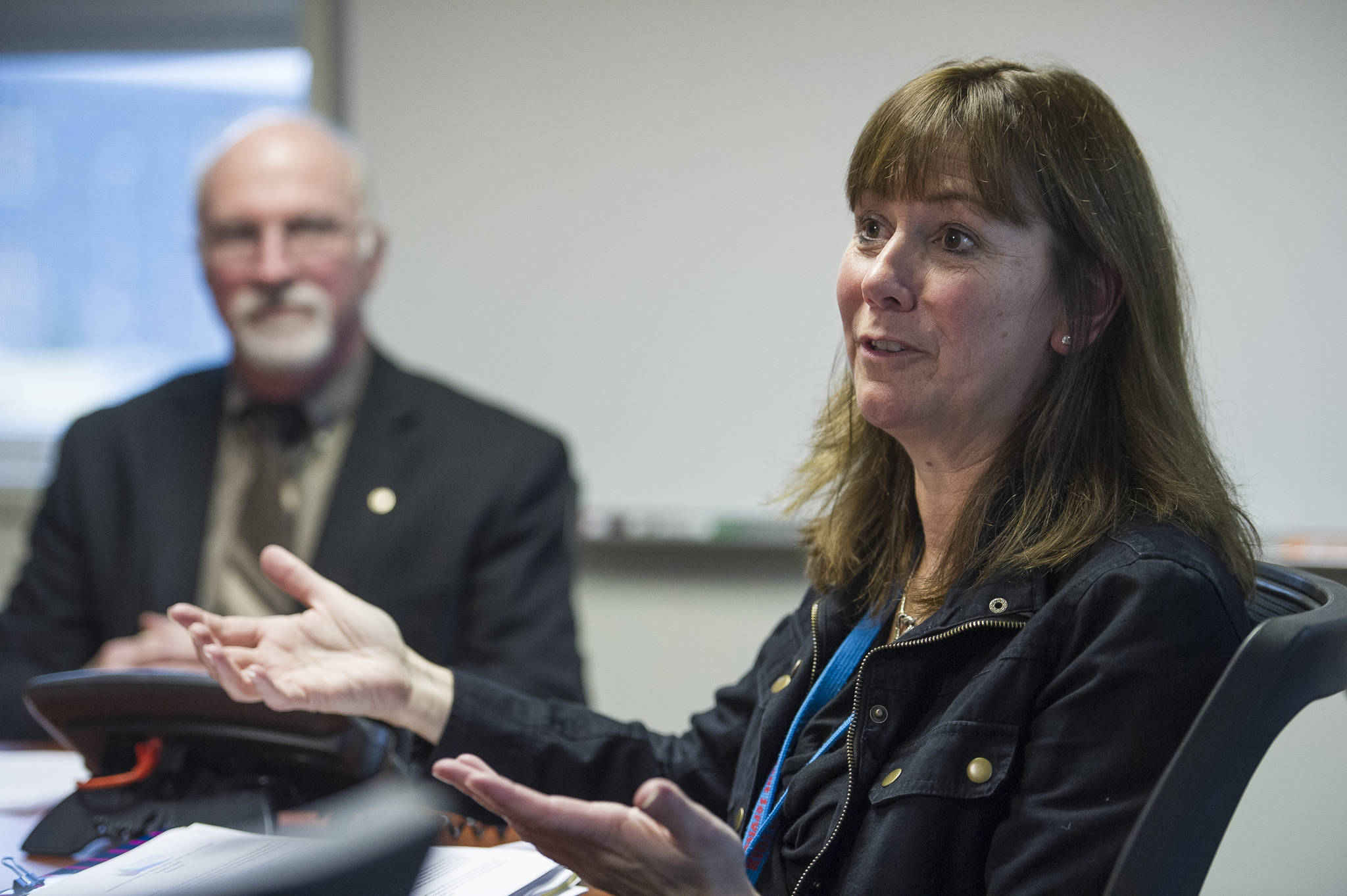City officials are on the verge of something they haven’t done in recent memory: committing money specifically for early childhood education.
A count of students in October revealed that the Juneau School District was well short of its projected enrollment for this year.
That shortfall means that the maximum amount of money that City and Borough of Juneau could give to the district is lowered by $167,500. As shown by the CBJ Assembly Finance Committee on Wednesday, though, that doesn’t mean that money can’t go toward education in some way.
The committee members agreed that they want that $167,500 — which can no longer go to K-12 programs — to go to early childhood education programs. Director of Student Services Bridget Weiss said the current plan is to give most of the funding to the KinderReady program that aims to prepare preschoolers for kindergarten. The Assembly will have to give the final approval to the change in funding in a future meeting.
Weiss said she can’t recall a time when the Assembly set money aside specifically for early childhood education, and CBJ Finance Director Bob Bartholomew concurred. Weiss said Wednesday’s meeting was important in multiple ways.
“The fiscal support is absolutely necessary, obviously, to run the programming,” Weiss said, “but also the general sense of support, the Assembly saying, ‘This is important to Juneau as a community and we play some part in providing early learning for our kids of Juneau. It really feels good to be partnering with the Assembly.”
The funding equation for education in Alaska depends on student enrollment, as school districts receive a certain amount of money from the state per student. Each municipality has a “cap” on how much it can give to a district, also based on enrollment. JSD’s count this October revealed a 123-student shortfall in what the district anticipated, meaning that both the state and CBJ funding for the district will drop.
In a December memo, JSD Director of Administrative Services David Means projected a $726,277 decrease in state funding. The CBJ Assembly had already planned on funding the school district to the cap, so it had the $167,5000 set aside in its budget anyway.
The KinderReady program is currently funded by a $150,000 state grant, Weiss said. That number is expected to rise in the fall, she said, but if this CBJ funding goes through, it would effectively double the funding for the KinderReady program. The school district hasn’t made all the decisions about the specifics of where the money will go, Weiss said, but this will likely go toward adding a second classroom for KinderReady and expanding the program to a full day long.
Bartholomew and Weiss said this funding would carry over into the next school year. Weiss said it could also allow KinderReady to partner with the Head Start program and possibly add summer programming as well. Currently, KinderReady is held at Harborview Elementary School and serves 19 4-year-olds.
The JSD Board of Education requested this change in funding at its January meeting, and then had a joint meeting with the Assembly Committee of the Whole on Jan. 31 to further discuss it. The members of the Board of Education have previously expressed their support for early education, approving a resolution in May 2017 that stated that the board is in favor of increasing pre-K funding in the future.
Weiss said that in addition to serving Juneau’s children, a more robust early childhood program can result in economic benefits for the city as a whole. She said making the city a better place to raise children can attract more people such as Coast Guard employees who have a say in where they’re transferred.
“The more programming we can have for their kids, the more likely we are to attract really high-quality workers in our workforce, which then boosts our economy,” Weiss said. “It’s very circular how much Juneau can benefit as a community.”
• Contact reporter Alex McCarthy at 523-2271 or alex.mccarthy@juneauempire.com. Follow him on Twitter at @akmccarthy.

